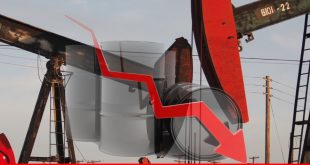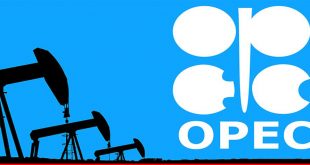Oil, like the snake eyes, has a killer’s fascination. Economic booms, bubbles, and bursts, all taking shapes in the slimy womb of this slick monster. The oil story has been written by the master oil CEOs like John Browne of British Petroleum, the deceptive oil ministers of oil-rich countries like Ali al-Naimi of Saudi Arabia, the yesteryears Seven Sisters of the West, the counterforce OPEC, and above all, the speculators and master traders like Andy Hall.
During the last three decades, the world has witnessed oil prices going up from $7 a barrel to $147 a barrel and then crashing back to $34 a barrel. A second wave during the said decades saw the prices rallying back to $110 a barrel before coming down to the current level of $60 plus a barrel. The oil market is deeply entrenched in speculative and political quagmires rather than having any real supply and demand issues. Kill speculation and political ambitions and you will find the oil prices stabilizing to a great extent. But then speculation is the soul of free market system and politics the battlefield of oil.
The Western cartel formed by the Seven Sisters ‘ BP, Exxon, Mobil, Shell, Chevron, Gulf and Texaco ‘ used to casually inform the Arab oil producing countries the per barrel price the cartel was going to offer for the next production year. The price those days centered around $3.60. The Arab producers would sign the prefixed price agreement subserviently. The Arab resentment against the Seven Sisters compounded with the passage of time and finally morphed into the creation of OPEC. Tom Bower writes in one of the most fascinating books of all times, Oil:
The new, unfocused group confronting the Western cartel remained ineffectual until the six-day war in 1967. Resentment against America and Britain sparked the declaration by Saudi Arabia of an oil embargo, but this show of bravado descended into farce when the Seven Sisters efficiently organized increased supplies from Iran and Venezuela, and Saudi Arab’s income plummeted. The fiasco emboldened Muammar Gaddafi after his coup in Libya in 1969. “My country has survived 5,000 years without oil,” he told Peter Walters, BP’s managing director, during their first tense meeting in 1970, “and unless we get more money we will stop supplies.”.The Seven Sisters, OPEC knew, could only control price so long as there was a surplus of oil. Armand Hammer, the chairman of Occidental, was the first to capitulate, reducing production and increasing his payments to Gaddafi in 1970. Gaddafi’s success encouraged the Shah of Iran, the governments of Venezuela and Saudi Arabia to demand price hikes.”
The perpetrators of price hike, as the world political history latter witnessed, were suitably punished, with Libya, Iran and Venezuela getting the undesired membership of Evil Axis Club, and Saudi Arabia having to foot the bill of the engineered Gulf War of 1990; the collateral damage being Mr. Bhutto of Pakistan.
The current price slide from $110 in June to $60 plus a barrel now is the manifestation of the escalation of war between the Western and the Arab oil interests. It is the same old story of oil squeezes and counter squeezes. The discovery of shale oil reserves was being seen by the West as an alternative energy option holding the prospects of ending dependence on Arab and Iran oil. With the United States
owning as much as 78 percent of the shale reserves, the global energy investment lined up at the doorstep of America. But the problem was the break-even point of the investment the conventional oil price over and above $80 a barrel or so. Any price around $100 a barrel will make shale investors more than comfortable. At the current level of prices, the shale investment is doomed. The repercussions for the West are unsavory with energy and mining sectors going into a tailspin — some of the corporations even going into default creating in turn a panic in the financial markets. The persistent price fall has been blamed on OPEC for not readjusting its production tap to stabilize prices at a level to suit the shale investors most. It’s the battle of wits. If OPEC gets an opportunity to squeeze the West, it will sure make use of it. That is what the free market opportunism dictates. That’s what the Seven Sisters used to do with the Arabs. But what about the counter squeeze in the offing? Is OPEC prepared for it?
Tom Bower has so beautifully summed up the narrative of oil in these words: Nevertheless, oil remained the world’s biggest business. Every aspect of mankind’s lives depended on the refinement of crude oil into energy, plastics, chemicals and drugs. For a century the commodity has been on a roller coaster, swinging from surplus to shortage. Cheap oil has fueled booms while high prices have plunged the world into recession. Finding a balance has been elusive. Always the target of mistrust, oil has now become a tougher, more unpredictable business than ever before.
The oil price slump has affected Pakistan’s economy in different ways. On the financial side, the energy stock’s market capitalization has eroded. Much is being said about the inventory losses of retail outlets. But that’s a one-sided financial view with little economic consequences. The same retail outlets have been making lots of money in the days of oil price hikes. On the economic side, the government should feel reprieved with the prospects of a reduced oil import bill. With the creation of this fiscal space, the issue of circular debt should now be easy to tackle. The economic planners should strive to write the script of an economic boom by focusing on energy sector revival with the help of Chinese expertise and forthcoming investment.
 PAGE Blog Business Weekly Magazine
PAGE Blog Business Weekly Magazine

